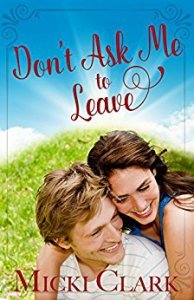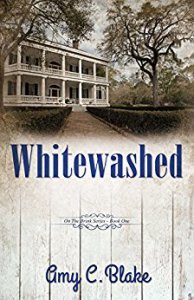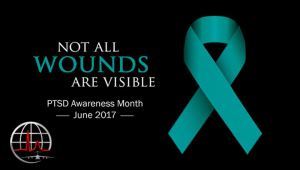Where Could I Go?
[image error]I’ve been struggling to think about what I want to say in response to the school shooting so close to my own town and the high school where I teach. It’s hard to put into words the rush and swirl of emotions I feel (and that I know so many others are struggling with). In October of last year, I wrote a guest blog post in reaction to the Antioch church shooting that I felt was appropriate to share with you. I’d like to share an excerpt with you (you may read the full original post on Patti’s Porch at https://goo.gl/REoDja).
I lead what I would call a blessed life. I have two wonderful Christian parents. I have a husband who genuinely loves me and our three children, and works very hard to provide us with a comfortable life. I thoroughly enjoy my job as a teacher. The Lord has blessed us in so many ways.
But on September 24, life wasn’t so grand. That morning, a masked gunman entered a Tennessee church and opened fire on the congregants. While this certainly isn’t the first church shooting in recent history, it is one of the first that’s been within a half day’s driving distance.
I hadn’t had time for that tragedy to fade from my consciousness when, on October 2, a shooting in Las Vegas killed nearly sixty people and left hundreds of others wounded.
Last Sunday, as I sat in church, I found myself looking around the auditorium during the service in a way that I never really had before. I wasn’t seeing the building, or the faces of my friends. I was contemplating a potential path to safety for my family should a gunman enter. It shook me to my core.
I was thinking the same thing that countless other parents have before me—why did I bring a child into a world so full of sin? Where could I go for safety? How could I protect those I loved from the unseen face of Evil?
And then it hit me. Where could I go, indeed? I simply had to look to the Father.
That day, I was preoccupied about how evil the world has become, but I had forgotten something. Since Adam and Eve left the Garden, this world has been full of sin, suffering, and anguish. While the ancient Christians might not have had to worry about church shootings, they definitely faced persecution, fear, and evil.
Most of us know the story of Stephen, a “man full of God’s grace and power” (Acts 6:8). We can flip through the Bible and find many examples of persecutors. Pharaoh. King Nebuchadnezzar. King Saul. Ahab and Jezebel. And so many more.
It’s not just in the Bible. In 177 AD, Eusebius, a historian, told us of a group of Christians in what is now Lyon, France, being gathered, interrogated, and tortured. In more recent history, we have Adolf Hitler, Josef Stalin, and countless others.
In other words, the world has always been full of sin. However, God’s word exists to provide us comfort.
In the aftermath of the Las Vegas massacre, many on social media decried the phrase “thoughts and prayers”. Prayers meant nothing, they insisted. Prayers are for sheep.
I agree. I am a sheep, and I am grateful that He is my Shepherd. Isaiah 40:10-11 tells us that “the Lord God will come with a strong hand and … he shall feed his flock like a shepherd: he shall gather the lambs with his arm, and carry them in his bosom.” Revelation 7:17 says “the Lamb … shall feed them, and shall lead them unto living fountains of waters: and God shall wipe away all tears from their eyes.”
As difficult as it might be to live in today’s world, so full of sin, fear, doubt, and anger, it can be easy to forget that we are loved by a Shepherd who will protect us from the wolves howling in our midst. It is He, and only He, who can wipe away the tears from our eyes.
For me, I will do what I can to raise my children safely in this world. We’ll lock our doors, learn how to look both ways before crossing the road, and other important things… but I refuse to raise my children with a fear of what may happen tomorrow. Life on Earth can truly be wonderful, but it simply cannot compare to the reward that awaits us.
Instead of living a life in fear of the evil that may be lurking around the corner, we’ll work on being like Matthew 5:14: “You are the light of the world; a city set on a hill cannot be hidden.” We will work our hardest to be good, to be faithful, and to spread God’s light as far as we can. If enough people do that, then we can certainly prevent evil from netting a stronger toehold. Either way, we can certainly look forward to a blessed life in Heaven with our Shepherd.
Latest News
 Where Could I Go?January 25, 2018General / WritingI’ve been struggling to think about what I want to say in response to the school shooting so close to my own town and the high school where I teach. It’s hard to put into words the rush and swirl of emotions I feel (and that I know so many others are struggling with). In October of last year, I wrote a guest blog post in reaction to the Antioch church shooting that I felt was appropriate to share with you. I’d like to share an excerpt with you (you may read the full original post on Patti’s Porch at https://goo.gl/REoDja).
Where Could I Go?January 25, 2018General / WritingI’ve been struggling to think about what I want to say in response to the school shooting so close to my own town and the high school where I teach. It’s hard to put into words the rush and swirl of emotions I feel (and that I know so many others are struggling with). In October of last year, I wrote a guest blog post in reaction to the Antioch church shooting that I felt was appropriate to share with you. I’d like to share an excerpt with you (you may read the full original post on Patti’s Porch at https://goo.gl/REoDja).I lead what I would call a blessed life. I have two wonderful Christian parents. I have a husband who genuinely loves me and our three children, and works very hard to provide us with a comfortable life. I thoroughly enjoy my job as a teacher. The Lord has blessed us in so many ways.
But on September 24, life wasn’t so grand. That morning, a masked gunman entered a Tennessee church and opened fire on the congregants. While this certainly isn’t the first church shooting in recent history, it is one of the first that’s been within a half day’s driving distance.
I hadn’t had time for that tragedy to fade from my consciousness when, on October 2, a shooting in Las Vegas killed nearly sixty people and left hundreds of others wounded.
Last Sunday, as I sat in church, I found myself looking around the auditorium during the service in a way that I never really had before. I wasn’t seeing the building, or the faces of my friends. I was contemplating a potential path to safety for my family should a gunman enter. It shook me to my core.
I was thinking the same thing that countless other parents have before me—why did I bring a child into a world so full of sin? Where could I go for safety? How could I protect those I loved from the unseen face of Evil?
And then it hit me. Where could I go, indeed? I simply had to look to the Father.
That day, I was preoccupied about how evil the world has become, but I had forgotten something. Since Adam and Eve left the Garden, this world has been full of sin, suffering, and anguish. While the ancient Christians might not have had to worry about church shootings, they definitely faced persecution, fear, and evil.
Most of us know the story of Stephen, a “man full of God’s grace and power” (Acts 6:8). We can flip through the Bible and find many examples of persecutors. Pharaoh. King Nebuchadnezzar. King Saul. Ahab and Jezebel. And so many more.
It’s not just in the Bible. In 177 AD, Eusebius, a historian, told us of a group of Christians in what is now Lyon, France, being gathered, interrogated, and tortured. In more recent history, we have Adolf Hitler, Josef Stalin, and countless others.
In other words, the world has always been full of sin. However, God’s word exists to provide us comfort.
In the aftermath of the Las Vegas massacre, many on social media decried the phrase “thoughts and prayers”. Prayers meant nothing, they insisted. Prayers are for sheep.
I agree. I am a sheep, and I am grateful that He is my Shepherd. Isaiah 40:10-11 tells us that “the Lord God will come with a strong hand and … he shall feed his flock like a shepherd: he shall gather the lambs with his arm, and carry them in his bosom.” Revelation 7:17 says “the Lamb … shall feed them, and shall lead them unto living fountains of waters: and God shall wipe away all tears from their eyes.”
As difficult as it might be to live in today’s world, so full of sin, fear, doubt, and anger, it can be easy to forget that we are loved by a Shepherd who will protect us from the wolves howling in our midst. It is He, and only He, who can wipe away the tears from our eyes.
For me, I will do what I can to raise my children safely in this world. We’ll lock our doors, learn how to look both ways before crossing the road, and other important things… but I refuse to raise my children with a fear of what may happen tomorrow. Life on Earth can truly be wonderful, but it simply cannot compare to the reward that awaits us.
Instead of living a life in fear of the evil that may be lurking around the corner, we’ll work on being like Matthew 5:14: “You are the light of the world; a city set on a hill cannot be hidden.” We will work our hardest to be good, to be faithful, and to spread God’s light as far as we can. If enough people do that, then we can certainly prevent evil from netting a stronger toehold. Either way, we can certainly look forward to a blessed life in Heaven with our Shepherd....
 Guest Blog AppearancesJanuary 23, 2018Don't Ask Me to Leave / General / WritingGood morning! I just wanted to quickly share two guest blog appearances with you.
Guest Blog AppearancesJanuary 23, 2018Don't Ask Me to Leave / General / WritingGood morning! I just wanted to quickly share two guest blog appearances with you.Yesterday, I was the featured guest on Main Character Monday, with an interview of the protagonist of Don’t Ask Me to Leave, Rachel Miller. You can visit Heather Greer’s blog and read the post here: https://goo.gl/6gwtmg. Heather’s book, Faith’s Journey, will soon be releasing from Mantle Rock Publishing. Learn more about Heather here: http://mantlerockpublishingllc.com/authors/heather-stearns-greer/
I will be a guest on Linda Fulkerson’s Ideas to Books Podcast in two weeks. Check back for a link soon, but if you’re interested in prior episodes, you can check out the podcast on iTunes now: https://itunes.apple.com/us/podcast/ideas-to-books/id1245507117?mt=2...
 How I Write: The Plantsing ProcessJanuary 22, 2018General / WritingOne of the most frequent questions that I am asked about writing, both from my high school students and from those that have read my novel, is “how do you get started writing”? It’s a good question (and a very personal question) since if you asked forty authors, you’d probably get thirty-eight responses. There are two basic schools of thought: planning and “pantsing”. Me, personally? I’m a plantser. Let me explain.
How I Write: The Plantsing ProcessJanuary 22, 2018General / WritingOne of the most frequent questions that I am asked about writing, both from my high school students and from those that have read my novel, is “how do you get started writing”? It’s a good question (and a very personal question) since if you asked forty authors, you’d probably get thirty-eight responses. There are two basic schools of thought: planning and “pantsing”. Me, personally? I’m a plantser. Let me explain.Most of the people who know me think I’d be a planner. I like things to be organized and in their place. I use color coordination in my classroom (each class is assigned a color, and their turn-in tray, their returned work, their folders, their paper clips, etc. are all that color). I once had my closet organized by length of sleeve, style, and color of garment, although I’ve relaxed on that somewhat.
However, I’ve found that for me, obsessively planning the plot of a novel is actually rather destructive. Characters won’t behave themselves and do what I want. They have minds of their own, and when I try to write them into a situation it just doesn’t work.
Author JK Rowling revealed that once she had a major issue with the planning of a novel, as seen in this excerpt from a 2000 interview with Entertainment Weekly:
Was this the hardest book you’ve had to write so far?
JKR: Easily.
Why?
JKR: The first three books, my plan never failed me. But I should have put that plot under a microscope. I wrote what I thought was half the book, and “Ack!” – huge gaping hole in the middle of the plot. I missed my deadline by two months. And the whole profile of the books got so much higher since the third book; there was an edge of external pressure.
And what exactly was that gaping hole all about?
JKR: I had to pull a character. There you go: “the phantom character of Harry Potter.” She was a Weasley cousin [related to Ron Weasley, Harry’s best friend]. She served the same function that Rita Skeeter [a sleazy investigative journalist] now serves. Rita was always going to be in the book, but I built her up, because I needed a kind of conduit for information outside the school. Originally, this girl fulfilled this purpose.
Of course, that’s more likely to happen to those who write in the other major writing style, “pantsing”, so called for the author’s tendency to write “by the seat of their pants”, so to speak.
Pantsing, quite frankly, terrifies me. It’s like getting in the car for a road trip and just pointing the car down the driveway with nary a destination in mind, just ambling along until something interesting happens. However, there’s something to be said for letting a story develop organically.
That’s why I do a combination of the two (and honestly, I think most writers are the same). When I start a manuscript, I write out a document that ends up being anywhere from five to ten pages in length and I generally tell the story as if I were summarizing it. Then, I take that summary and chunk it up. Can I get 25 – 30 chapters out of it? If not, I go back and dream up another plot twist (or two).
When I have the chunks identified, I create a Google Doc for each chapter and paste the sentences for that chunk at the top. I use those four to five sentences as an inspiration for the chapter, a general destination, but the actual chapter happens pretty fluidly.
What I like about writing in this style is the ease with which I can come back to the manuscript. I’m a full-time teacher and a mom of three kids. Life is busy. I don’t often have hours or days to devote to writing, but this way, I can drop in on a chapter, write it, and move on. Later, when the chapters are finished, I paste them in one document and start working on continuity and flow.
Are you an author? How do you create your work?...
 #BookReview #Twofer – Amy Blake’s Whitewashed & ColorblindJanuary 6, 2018Monthly Book Review / WritingIf there’s an upside to having a sick child and spending an evening on the couch on “trashcan watch”, it’s having a good book (or two) to use as a distraction. I was definitely lucky last night to have recently downloaded author Amy C. Blake’s Whitewashed and Colorblind to my Kindle.
#BookReview #Twofer – Amy Blake’s Whitewashed & ColorblindJanuary 6, 2018Monthly Book Review / WritingIf there’s an upside to having a sick child and spending an evening on the couch on “trashcan watch”, it’s having a good book (or two) to use as a distraction. I was definitely lucky last night to have recently downloaded author Amy C. Blake’s Whitewashed and Colorblind to my Kindle.When I began reading Whitewashed, I was pleasantly surprised. I don’t know what I expected, but it wasn’t a shift to a narrator that seemed deliciously malicious (and the use of the pronoun “we”–one evil person lurking in the shadows or two?). I positively raced through Whitewashed, several times accidentally turning the pages too fast on my Kindle and having to go back a page or two.
Whitewashed follows Patience (who, unlike her name, is a bit impatient), a nascent college student willing to give up a potential full ride to a prestigious school and instead attend the small institution Verity in her grandparents’ hometown of Hades, where her grandfather was once a professor.
Patience isn’t long at Verity before things start happening, and we realize that there’s something quite sinister lurking just beneath the surface (both literally and figuratively).
There’s an interesting cast of characters, and Blake does a good job weaving her tale. I was equally dismayed and pleased that she’d tricked me when I reached the end; I hadn’t fully guessed the twist as I thought I had.
What’s also pleasant about Whitewashed is that it’s clean fiction; this is a book that you can leave lying about and not feel guilty if your child wanders along behind you and picks up your copy (unlike many other mystery and suspense tales).
I finished Whitewashed around 11:00, and while I had to go on to sleep, I went ahead and downloaded Colorblind to start as soon as I woke up.
I had expected Colorblind to continue Patience’s story, and in a manner of speaking, it did–just not in the way I expected. In the beginning of Whitewashed, Patience mentions her two good friends (and refers to them periodically throughout the novel). Colorblind follows Christy Kane, one of Patience’s best friends.
Colorblind begins with the protagonist being blindsided by news that sends her perfect world crashing down around her ears: therk aher that she loved, trusted, and planned to work alongside has been accused of adultery with another church employee. The media is circling, and Christy barely has time to gather her thoughts before cameras are shoved into her face.
To give Christy a chance to escape from the paparazzi and (hopefully) still complete her summer internship, Christy’s mother negotiates a position at Christy’s Aunt Jo’s music and dance school. There’s just one tiny problem: the school is on the shores of a massive lake, and Christy is beyond terrified of water.
Colorblind is written in a similar fashion to Whitewashed, with the narration shifting between our fair heroine and the person or persons unknown who are intent upon destroying the Pier Ball Room and everyone associated with it.
Both Whitewashed and Colorblind were excellent reads; I look forward to the next novel, telling the third friend’s story.
Have you read a good novel lately? I’d love to hear your recommendations. Connect with me on Twitter (http://www.twitter.com/MickiSClark) or Facebook (http://www.facebook.com/AuthorMickiSClark)....
 Why I #AmWriting About PTSDJanuary 3, 2018The Soldier's Wife / WritingI was recently chatting online with some people about my work in progress, The Soldier’s Wife. I was telling them about my plans for the characters, and we started talking about my plans for Uriah. In the Bible, Uriah is a soldier. In my novel, he becomes Ryan, a special forces member who has come back from a recent deployment not quite himself. He’s struggling with PTSD, which is one of the contributing factors to the breakdown of his marriage to Barbara (Bathsheba).
Why I #AmWriting About PTSDJanuary 3, 2018The Soldier's Wife / WritingI was recently chatting online with some people about my work in progress, The Soldier’s Wife. I was telling them about my plans for the characters, and we started talking about my plans for Uriah. In the Bible, Uriah is a soldier. In my novel, he becomes Ryan, a special forces member who has come back from a recent deployment not quite himself. He’s struggling with PTSD, which is one of the contributing factors to the breakdown of his marriage to Barbara (Bathsheba).One of the people raised this question: why give Ryan PTSD? It’s a good question. Here’s why.
PTSD, or Post-Traumatic Stress Disorder, is becoming very prevalent in our society. Here are some statistics, courtesy PTSD United:
8% of Americans have PTSD at any given time. That’s over 24 million people.
The Veterans’ Administration (VA) estimates that up to 20% of Operation Enduring Freedom veterans suffer from PTSD. That’s 400,000 soldiers.
In the past year, the number of diagnosed cases in the military jumped fifty percent–and that’s just the diagnosed cases.
If those statistics aren’t sobering enough, here are a few others from the VA:
In 2014, 18% of all adult suicides in the United States were military veterans.
That is an increase of 32% since 2001.
The increase of female veteran suicide rates is an even more alarming 85.2%.
Unfortunately, our society doesn’t like to talk about the “ugly” side of war. It’s only been in the recent past that we have begun to truly discuss and learn about the atrocities of the Vietnam War (and if you don’t know much about the war, I highly recommend Ken Burns’ documentary).
It’s not a disservice to Uriah to give his modern counterpart PTSD. PTSD is a very real struggle that many of our military (and, let’s face it, non-military) families face every day. Simply “not talking about it” won’t make it go away.
Aside from calling attention to the issue, I think including it also gives more potential depth to the characters. We really must think about the motives that everyone has for their behavior (from David to Uriah to Bathsheba), and how each bear their own responsibility for everything that is to come.
There’s no doubt Uriah was a good soldier. He wanted to stay with his men. But what kind of husband does that make him? Well, that’s one of the things that I explore in The Soldier’s Wife.
What are your thoughts? I’d love to hear them!...



